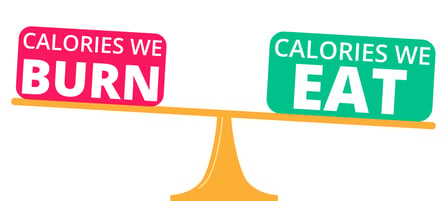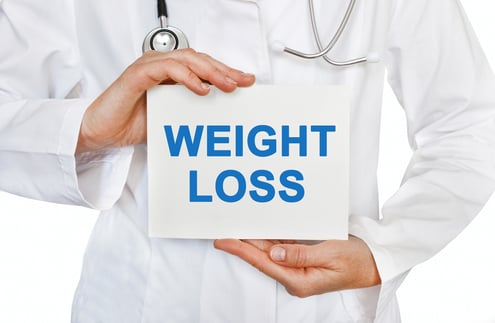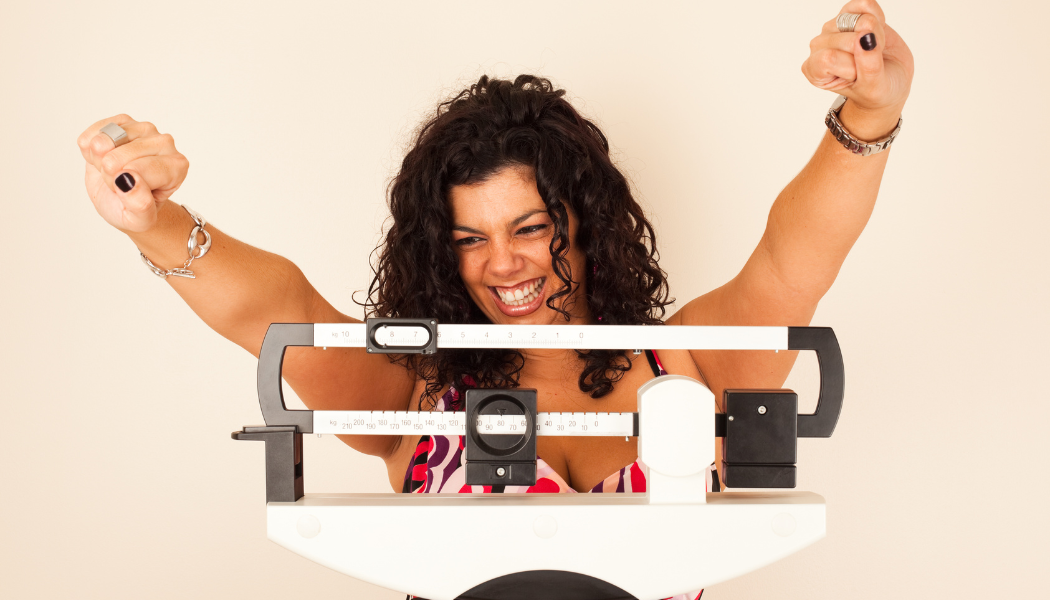By: Melissa Mitri, MS, RD
Does dieting often feel too hard? If so, your body is trying to tell you something. In this case, taking a break from dieting may be the key to sustainable weight loss.
If your weight loss progress has slowed down, you may think you need to be more strict with your diet. But what if taking a diet break is what your body really needs to accelerate fat loss again?
If you’ve been on the weight loss struggle bus for some time, you know you need a calorie deficit in order to lose weight. But as you lose weight, your calorie needs decrease and subsequently, your hunger levels increase. When this happens, it can make it harder to control your appetite in order to continue losing weight.
What if all you needed was to temporarily loosen the diet restrictions a bit? This is otherwise known as a diet break, and it may help you lose more weight than continuous dieting. Keep reading if you want to know:
- What are diet breaks and how they can help you lose weight?
- When you may want to consider a diet break
- How to schedule a diet break and do it right
- The downsides of diet breaks and things to look out for
What Is a Diet Break?
Do Diet Breaks Work? What the Research Says
A diet break is a temporary break in your diet where you’re no longer restricting calories. Diet breaks are typically practiced for 1-2 weeks before the previous calorie deficit is resumed. During this time, diet restrictions are loosened and you are allowed more calories.
A variation of a diet break is to maintain a daily deficit during the week and consume maintenance calories on the weekend when people tend to eat more due to social events and lifestyle.
The main purpose of a diet break is to alleviate cravings, hunger and any mental fatigue associated with restricting calories.

The concept of diet breaks began from a landmark study called the Matador Study. In this study, 51 overweight men were separated into two groups and placed on a calorie-restricted diet.1
Here are the details of the study and what they found:
Group 1: Followed a 33% calorie deficit consistently for 16 weeks
Group 2: Followed a 33% calorie deficit for 30 weeks, but took 2-week diet breaks
Results:
Those in Group 2 lost 50% more fat than Group 1. They also retained their lean muscle mass and had a much less significant metabolic slowdown. In other words, they were able to maintain a faster metabolism to support more weight loss.
The diet break group also maintained more fat loss at a six-month follow-up than the continuous dieting group. Even though this study only involved overweight men, it may hold promise for the rest of us.
A more recent diet break study called the ICECAP Trail came out in 2021, which showed less impressive results. In this study, there were also 2 groups - a continuous dieting group and a diet break group for 12 weeks.2-3
There were no significant differences in fat loss between the 2 groups, but the diet break group experienced less hunger. And having less hunger may still make dieting long-term easier to maintain.
How Do You Know When You Need a Diet Break?
Here are some telling situations in which you may need a diet break:
- You can’t recall a time when you weren’t dieting
- Your weight loss has slowed or stopped completely
- You feel deprived and feel you can’t decrease your calories any further
- You’re having trouble sticking to your diet plan
- You’re starving and find yourself overeating or binge eating
- You can’t stop thinking about food or what meal to eat next
- You’re lacking energy, are moody, or mentally drained
If any of these symptoms are occurring regularly, it may be time to consider a diet break.

The general recommendation is to take a 1-2 week diet break every 1-3 months. Some people like to take shorter diet breaks every 3-4 weeks, while others take longer breaks every 3 months. And some choose to maintain a caloric deficit during the week and increase calories to maintenance levels on the weekend.
The most important factor to know about diet breaks is listening to your body and monitoring your results. If you feel deprived or your weight loss has slowed, you may want to incorporate diet breaks.
Potential Benefits of Diet Breaks
There are numerous potential benefits to diet breaks. Here are some of them:
- Alleviates the stress of dieting
- Reduces feelings of deprivation
- May increase weight loss
- Improves sustainability of any diet plan
- May increase muscle endurance
If you ever struggled to stick with a diet plan, taking a diet break can give you a much-needed “break” from restricting your calories. If you’re wondering how to actually perform a diet break, read on.

How to Schedule a Diet Break
A diet break doesn’t mean that you go ahead and eat whatever you want. There are a few simples rules in order to ensure it’s done right:
- Increase calories to your new maintenance levels. If you’ve already lost weight, your maintenance calories likely decreased, so you’ll want to use that new maintenance level as your target during a diet break.
- Schedule a diet break every 1-3 months depending on how severe your calorie deficit is. A more restrictive diet requires more frequent diet breaks. Eat at maintenance calories for at least 1-2 weeks, or longer if needed.
Continue to focus on primarily healthy, whole foods during diet breaks.
Downsides of Diet Breaks
There are a few potential negatives to taking diet breaks to be aware of:
- There is a risk of overeating and weight gain if you’re not careful. If you’ve been restricting and now are giving yourself free rein to eat what you want, it can be easy to overdo it. Remember to gradually increase your calories and stick to maintenance calories to prevent weight gain.
- The weight loss process may seem longer to account for the diet break periods. If you’re looking to lose weight fast, you may get frustrated with the amount of time required to incorporate diet breaks. If your goal is quick weight loss, it’s important to remember that quick weight loss often means quick weight gain as well.
- You’ll have to practice patience throughout the process. Remember that weight loss is more like a marathon than a race. Once you come to terms with this, you’ll find the process a lot easier and more enjoyable.
Summary
If you’re on the hunt for an easier way to lose weight, you may want to give diet breaks a try. They may help curb hunger and cravings.
While diet breaks can be helpful, they’re not necessarily the end all be all. Another way to make sticking to a calorie deficit easier long-term is by incorporating a satiating meal replacement shake and a fat loss supplement into your routine.
By including high-quality products and listening to your body, you’ll be on your way to achieving lasting results and will stay satisfied throughout the process!
References
- Byrne NM, Sainsbury A, King NA, Hills AP, Wood RE. Intermittent energy restriction improves weight loss efficiency in obese men: the MATADOR study. Int J Obes (Lond). 2018 Feb;42(2):129-138. doi: 10.1038/ijo.2017.206. Epub 2017 Aug 17. PMID: 28925405; PMCID: PMC5803575. https://pubmed.ncbi.nlm.nih.gov/28925405/
- Peos JJ, Helms ER, Fournier PA, Ong J, Hall C, Krieger J, Sainsbury A. Continuous versus Intermittent Dieting for Fat Loss and Fat-Free Mass Retention in Resistance-trained Adults: The ICECAP Trial. Med Sci Sports Exerc. 2021 Aug 1;53(8):1685-1698. doi: 10.1249/MSS.0000000000002636. PMID: 33587549. https://pubmed.ncbi.nlm.nih.gov/33587549/
- Peos JJ, Helms ER, Fournier PA, Krieger J, Sainsbury A (2021) A 1-week diet break improves muscle endurance during an intermittent dieting regime in adult athletes: A pre-specified secondary analysis of the ICECAP trial. PLOS ONE 16(2): e0247292. https://doi.org/10.1371/journal.pone.0247292


